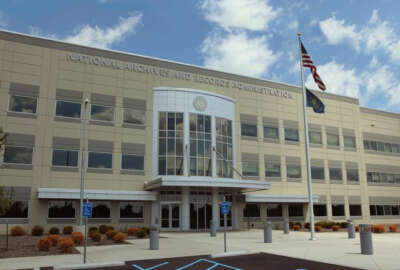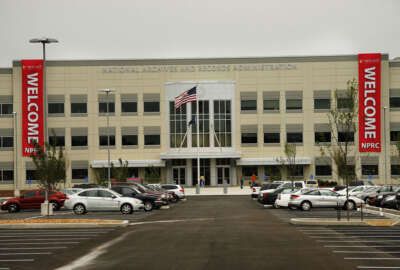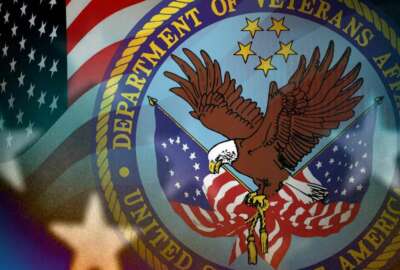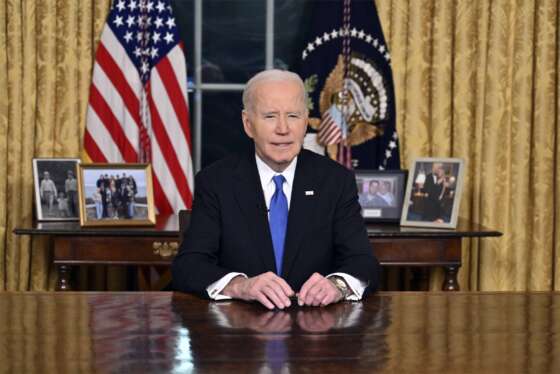Congress investigating whether companies are profiting off veterans disability claims backlog
The House Committee on Oversight and Reform sent letters to veteran records retrieval companies including DD214 Direct, Aardvark Research Group and Angels Research.
Members of Congress are investigating whether third-party records companies are profiting from a pandemic-induced backlog of veterans disability claims. The National Archives and Records Administration has been trying to speed up records requests to process the claims but to no avail, impeding veterans’ access to essential services like health care and housing.
Today, House Committee on Oversight and Reform Chairwoman Carolyn Maloney (N.Y.) and member Rep. Stephen Lynch (D-Mass.) sent letters to veteran records retrieval companies including
DD214 Direct, Aardvark Research Group and Angels Research. The letters state the committee is investigating “whether companies that retrieve records for veterans … are misusing National Personnel Records Center (NPRC) procedures intended to expedite emergency records requests while charging veterans to obtain government records they are entitled to receive at no cost. We are concerned this practice may take advantage of veterans who need records to obtain crucial benefits and may be preventing NPRC from fulfilling true emergency requests in a timely manner.”
The letters also point out that the backlog of requests for the form used to obtain veterans’ benefits, known as the DD Form 214, or DD214.2, comes at a cost even though veterans are entitled to receive these forms for free:
- DD214 Direct charges between $79 and $99
- Aardvark Research Group charges between $89 and $99
- Angels Research charges $95
The Department of Veterans has previously warned people to be wary of companies claiming to sell veterans access to their own records.
According to the letters, the NPRC’s director told the committee that “emergency requests skyrocketed from the pre-pandemic level of 5,000 per year to more than 50,000 emergency requests in 2021, more than 70% of which came from records-retrieval companies.” The pattern described is as follows:
- A veteran submits a non-emergency request for records
- NPRC later receives a duplicate request from a records-retrieval company for the same veteran, but marked as an emergency request.
- NPRC prioritizes emergency requests above other pending requests, worsening the backlog.
The committee also says the way the companies refer to their employees in terms such as “military records researchers,” “authorized researchers” or “research and records specialists” could be misleading because NARA does not endorse, certify or accredit third parties to request records on behalf of veterans.
Federal News Network reached out to the named companies for comment.
In March of this year, the House Committee on Oversight and Reform introduced the Access for Veterans Records Act which would authorize $60 million for the National Archives and Records Administration to address the logjam at the NPRC. At the time, the backlog stood at about 600,000 requests.
The backlog built since the start of the pandemic when the National Archives and Records Administration had to send most employees of the NPRC in St. Louis into remote work. The NPRC houses and processes military and medical documents that veterans need to apply for federal benefits.
From the couple million boxes of military and medical records stored in 15 warehouses at the NPRC, staff would usually respond to 1 million requests for military records each year. The majority of records needed to fulfill the requests are paper-based and only 10% are available electronically.
As such, NARA issued a formal request for assistance from the Pentagon in May 2021, Federal News Network reported:
“NARA requests that DoD provide personnel support on a non-reimbursable basis pursuant to Title 44, U.S. Code, Section 2105. Other than such pay and allowance costs, NARA will reimburse DoD for all costs in accordance with the Economy Act (31 U.S.C. 1535). NARA will provide the appropriation information, the account chargeable, and the name and address of the individual responsible for making the payment,” the request said.
The committee asked the companies to answer a set of questions about their processes, marketing and revenues by July 29.
Copyright © 2025 Federal News Network. All rights reserved. This website is not intended for users located within the European Economic Area.
Amelia Brust is a digital editor at Federal News Network.
Follow @abrustWFED








